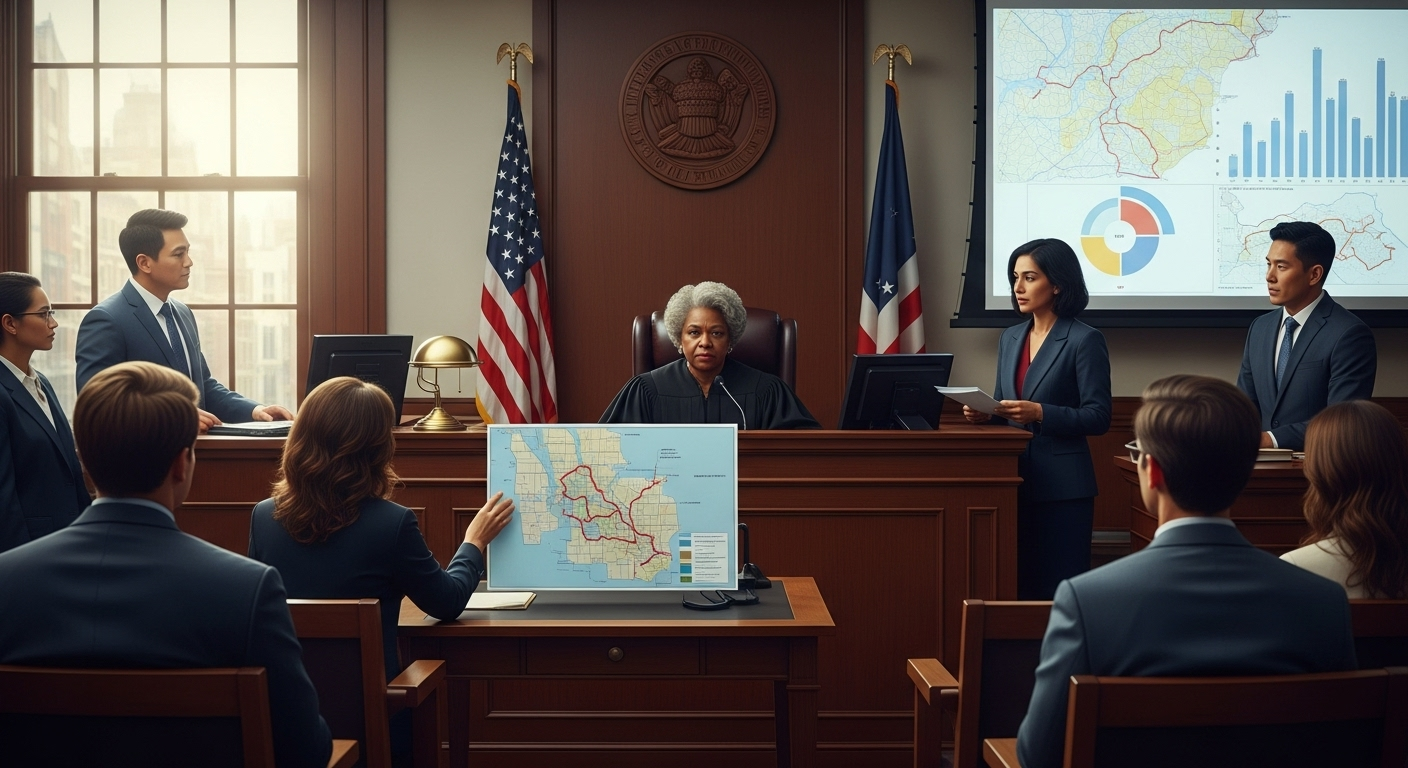"Deciphering the Implications of Gerrymandering on Democracy"
Introduction: The democratic process is a fundamental pillar of any free society. One issue that continues to challenge this process is gerrymandering. This article delves into the historical context, recent developments, and potential implications of this controversial practice.

The Origin and Evolution of Gerrymandering
Gerrymandering is a practice that has spanned centuries and continents. The term was first coined in 1812 when Massachusetts Governor Elbridge Gerry signed a bill redrawing the state’s senatorial districts, one of which resembled a salamander, thus giving birth to the term ‘Gerrymander.’ The objective was to manipulate the boundaries of an electoral constituency to favor one party or class.
Modern Instances and Legal Battles
In recent years, gerrymandering has been a contentious issue, with significant legal battles fought over its legitimacy and impacts. In 2019, the Supreme Court of the United States ruled in Rucho v. Common Cause that federal courts could not intervene in cases of extreme partisan gerrymandering, sparking a renewed debate about the role of the judiciary in overseeing electoral fairness.
The Legal Perspective: Is Gerrymandering Unconstitutional?
The constitutionality of gerrymandering has been a subject of intense debate. Critics argue it undermines the principle of equal representation, while proponents maintain it’s a legal and practical part of political strategizing. The Supreme Court has been reluctant to adjudicate gerrymandering claims, asserting that such disputes are political questions outside the purview of the judiciary.
The Societal Impact: Erosion of Democratic Principles?
Gerrymandering has profound implications for democracy. It can lead to misrepresentation, where elected officials do not accurately reflect the will of the people. This can undermine public trust in the political process and contribute to political polarization, as districts become more homogeneous and less competitive.
Moving Forward: Possible Solutions and Reforms
While gerrymandering is a deeply rooted issue, potential solutions exist. Some suggest that independent commissions, rather than politicians, should draw district lines. Others propose mathematical algorithms to ensure the fairness of districts. Regardless of the chosen solution, it’s clear that addressing gerrymandering is crucial in safeguarding the integrity of our democratic process.
Gerrymandering continues to shape the political landscape, affecting the democratic process and the representation of citizens. As the debate rages on, it’s important to stay informed and understand its implications. Ultimately, the resolution of this issue could have profound effects on the future of democracy.




